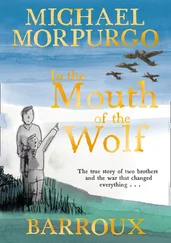On occasion we entered the Historical Society itself and viewed with awe the reassembled cabin where Abraham Lincoln had spent part of his childhood, and the items taken from his pockets the night of his death. I was fascinated by these things and developed the belief, shared only with Matt, that if Lincoln’s former home and cherished belongings lived in this old building, then the spirit of Abe himself couldn’t be far away.
From the park we would go to the big red-brick mansion where the Cardinal lived and where, my cousin assured me, the Pope stayed when he was in Chicago on vacation; we prowled shops and gangways in Old Town and ventured west across Orleans into the projects. I found these little treks with Matt almost as interesting as my Wednesdays with Uncle Tom, especially as there was an element of danger present in his company: Matt seemed to delight in antagonizing other boys, he could spot a group of kids on a street corner—white kids or black, it made no difference to him—and say something in five seconds that would have all of them chasing us with blood in their eyes.
Once or twice they caught us, these unsuspecting boys, some of them several years older than we, and then Matt stunned us all by popping one of them in the mouth and taking off before anyone could react. He was quick and devious, and I never saw a sign of fear, though once a taller boy was getting the better of him and Matt, sobbing through gritted teeth, went so crazy, punching and clawing and kicking, that the older boy let him go and took off running. I was to see Matt fight a number of times as we got older, and to see his anger often, though rarely directed at me.
Most of the time, though, we just explored that part of the city, from Old Town to the outer edge of the Loop, from the projects to the lake. Soon we took on followers, three or four of the kids from Grandma Dorsey’s block. They liked me well enough but were drawn to Matt: when he wasn’t bent on provoking fights with large groups of strangers, he was actually a good companion. Every group needs a child who looks beyond the normal activities and routines, who sees in odd things possibilities for recreation, if not criminal malfeasance, and Matt served in that capacity for us. He was not only adventurous but imaginative, and his peculiar obsession was with gates and bars and barriers, which he read as the adult world’s personal challenges to children, sufficient to generate an immediate and urgent need for transgression.
We scoured the city, climbed roofs and roamed cobblestone alleys—most of the old alleys in those days and a good number of the sidestreets in Chicago were still surfaced with smooth red bricks that were picturesque but hell on car tires. We investigated porches and basements, jumped fences and even broke into the odd building.
Once we came upon a tall, weathered frame building that looked very much like a farm building, a relic perhaps of the days when that section of the city had been unreclaimed prairie. It had the big double doors of a barn and leaned to one side, as though gravity were about to tip it over. Matt took one look at it and decided it was a national treasure.
“It’s a hundred years old.”
“How do you know?”
“I can tell. The wood’s all gray, and they don’t build buildings like this no more. Let’s go in.”
“We’ll get in trouble,” I said.
He looked at me as though I’d drooled on my chest.
“No, we won’t. The guy who owned this is dead, or he would have painted it.”
This seemed air-tight logic to me, and I told him I was in.
The building sat on a corner lot, surrounded on both sides by what we always called “prairies”—unused vacant lots given over to weeds and prairie flowers sometimes four or five feet high, and thick as the bristles on a brush. Rabbits and mice lived in these places, and small snakes, you could lose or hide things in them, and Matt contended that a dead man had been found in one near his house but no one believed him.
Grandma Dorsey had begun giving me my father’s old Hardy Boy mysteries, and I realized that I was poised at the onset of exactly the type of adventure that Frank and Joe Hardy seemed to have every week. Thus the locked doors of the old barn gave me no pause: the Hardy Boys were forever breaking-and-entering in the name of adventure. Besides, to this day I have no idea where we were but it was a strange neighborhood, and a crowd of small boys far from their homes quickly lose what little moral restraint they have acquired. We bought Matt’s line of reasoning without hesitation. Rooting around in the high grass like a scavenger tribe, we found a rotten log and, using this as a battering ram, Matt and I and a boy named Terry Logan pounded at the ancient planking near the back of the building until it caved in with a dry crack. We pulled the shattered plank away and without hesitation crawled in.
A billion specks of dust hung suspended in the bar of gold light from the hole we’d just made, and the rest was darkness. We were vaguely aware of a large dark shape in the center a few feet away but it wasn’t ’til our eyes had adjusted to the darkness that we realized it was a car. It was unlike any car I was familiar with, tall and boxy and odd, and I realize now that it was probably one of the old ungainly cars from the 1920s. More important to us than its strange silhouette were the thick cobwebs that hung from it and dangled from what few corners of the old barn we could see. Matt drew a finger through the dust along the door of the car, then looked up and squinted into the dark.
“There’s something up there,” he said, and my heart sank but I followed him to the back, where we found a brittle wooden staircase that moved from side to side as the three of us climbed up. “Up” led to a loft that seemed to run along all four sides of the building. It was narrow and crowded with boxes and long or bulky objects that we could not see but which made each step an adventure. At one point Terry Logan almost fell out of the loft, and afterwards I could hear his fevered, terrified breathing.
“Ain’t this a ball?” Matt asked at one point, and I almost laughed aloud at Terry’s unconvincing, “Sure is.”
“Prob’ly spiders up here,” Matt said with undisguised joy.
At the front we found a sort of window, matted with fifty years of dust and filth, which Matt kicked in after only a second’s moral debate, our earlier assault on the wall having made him a hardened second-story man. Sunlight, blinding sunlight, shot through the hole. Now that we could see around us, the barn lost none of its mystique: we could see old farm tools, ploughs and scythes and a pile of old wood-handled drills, and Matt thought he’d died and gone to heaven.
“This place is great, this is unbelievable. These are from Civil War times I bet.”
“Maybe older,” I suggested, and we had a brief three-way debate on whether there had been a Chicago before the Civil War, with the others insisting that there hadn’t been, and me holding to a position that Chicago was even older than New York.
Our discussion was interrupted by the sound of a car pulling up very close by. We scampered down the staircase, and I was struck by a wave of terror that did not abate even when I tumbled the last three steps and landed on my back with Terry Logan on top of me. Matt was already out the hole. When we emerged into what seemed to be a sun that had moved closer in our absence, we saw a man staring at us. I have since seen shock on many faces, but never, before or since, have I seen shock so perfect, so total, as this man watched three small boys issue from his property through a hole of their own making. His mouth was open and his eyes unnaturally wide, and when he finally spoke, his voice was just a whisper.
Читать дальше












